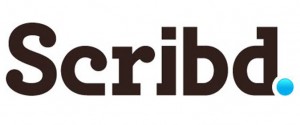
When the so-called “all you can eat” ebook subscription platforms first began to take shape, there were a lot of hurdles to be overcome. The first, and probably most important, was that there wasn’t a lot of content; publishers weren’t exactly eager to post their bestselling titles without seeing concrete proof of how the compensation would pay out, and letting members pay a low monthly fee for Netflix-style consumption didn’t suit them.
Of course, the readers themselves were a little wary, too. Some early adopters jumped on board immediately to pay a flat rate for unlimited access, but by and large, the early days of subscription reading were disappointing.
With this round of startup success, though, Scribd has made tremendous strides due to being a versatile company that lets users upload their own content, as well as inviting readers to enjoy the unlimited model. Of course, since ebooks and digital reading have finally found their niche, publishers were more likely to support the model with content that people actually wanted to read.
But what may have really helped Scribd establish its foothold in the model is the way the company continues to make the subscription reading experience every bit as enjoyable and seamless when compared to how these same consumers would be using ebooks if they were buying them individually. Readers can still build a library within their account and select new titles just as they would if they were shopping to purchase those books from their go-to retail platform. And yesterday, Scribd announced the image zoom features within its titles, so users can get a clearer picture of maps, images, and illustrations. They also introduced the addition of highlight and annotation capabilities, meaning readers can basically markup the books they borrow and share those notes and quotes through social media channels.
Try that with a borrowed print book.
eBook subscriptions were an exciting idea that unfortunately burst onto the scene too soon. The dust hadn’t settled from the device wars and the ebook price fixing lawsuit hadn’t even happened when the first companies tried to convince readers and publishers that the model would work. Now that the time seems to have come for flat-fee unlimited reading, Scribd was poised and ready to produce a reading experience to match it.
Mercy Pilkington is a Senior Editor for Good e-Reader. She is also the CEO and founder of a hybrid publishing and consulting company.
